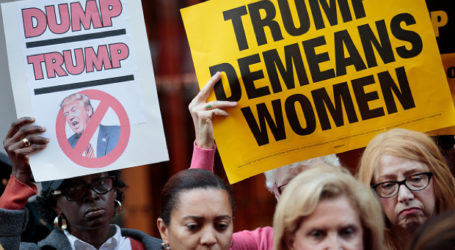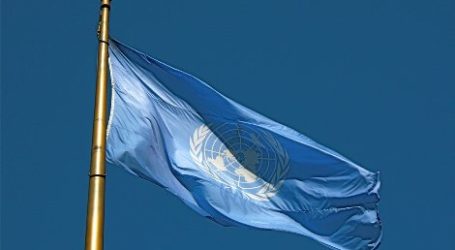INTERNATIONAL CALLS TO EXERCISE RESTRAINT AND STOP VIOLENCE IN EGYPT
 New York, 8 Shawwal 1434/15 August 2013 (MINA) – The violent dispersal of ongoing sit-ins by partisans of ousted president Mohamed Morsi in Cairo on Wednesday and subsequent clashes have drawn international concern and condemnation.
New York, 8 Shawwal 1434/15 August 2013 (MINA) – The violent dispersal of ongoing sit-ins by partisans of ousted president Mohamed Morsi in Cairo on Wednesday and subsequent clashes have drawn international concern and condemnation.
The dispersal of the sit-ins sparked violent clashes in Cairo and in many provincial cities, as well as attacks on churches in a number of locations. Death tolls continue to rise, with at least 143 confirmed dead by the health ministry.
White House spokesman Josh Earnest said the violence runs counter to the pledges made by Egypt’s interim government. He said the “world is watching” what is happening in Cairo and urged restraint.
The State Department later released a statement stating that it is still reviewing its $1.3 billion annual military aid to Egypt, as it has been for weeks.
President Barack Obama’s administration has found little leverage to influence events in Egypt. The United States initially said it would review whether the Egyptian military’s removal of the elected Morsi was a coup, a designation that would force Washington to cut off its assistance.
US Secretary of State John Kerry on Wednesday night urged Egypt’s military to allow elections and for all sides to avoid further violence.
“Today’s events are deplorable and they run counter to Egyptian aspirations for peace, inclusion and genuine democracy,” Kerry told reporters.
Kerry had previously praised the role of the military and said it was trying to restore democracy by ousting Morsi.
UN Secretary-General Ban Ki-moon denounced the violence and urged all sides to reconsider their actions in light of new political realities and the need to prevent further loss of life.
Ban said he regrets that Egyptian authorities chose to use force to respond to the demonstrations and is “well aware that the vast majority of the Egyptian people want their country to go forward peacefully in an Egyptian-led process towards prosperity and democracy,” according to a statement from his office.
Ban urged all Egyptians to focus on reconciliation, the statement said, because he believes that “violence and incitement from any side are not the answers to the challenges Egypt faces.”
European reactions
The European Union’s foreign policy chief, Catherine Ashton, deplored the violence and called on Egypt’s security forces to “exercise utmost restraint.”
“Confrontation and violence is not the way forward to resolve key political issues,” she said. “The country’s democratic future will depend on a dialogue among all concerned aimed at overcoming differences in an inclusive process of political reconciliation, with a fully empowered civilian government and functioning democratic institutions.”
She outlined several key elements to move the process forward, including “peaceful protest, protecting all citizens and enabling full political participation.”
France’s foreign ministry said that the country “deplores very vigorously” the violence during the evacuations.
“It is essential that this violence ceases and that a logic of calm prevails,” the ministry said, calling for restraint by all and warning against a “disproportionate use of force.”
Foreign Minister Laurent Fabius has stressed that dialogue and compromise are the path to resolving Egypt’s crisis, calling for raising the case to the UN Security Council as per France 24 Channel.
Britain, Germany, Spain, Italy and Norway all appealed for mutual restraint by Egypt’s factions and for negotiations to resolve the crisis. The UK embassy in Cairo will be closed on Thursday, and the British Foreign Office updated its travel advice, warning British citizens to avoid “all but essential travel” to anywhere in Egypt except resorts in south Sinai.
Russia’s foreign ministry echoed the European Union states, saying forbearance by all sides in Egypt was of “the highest national interest.” It said it was suspending the work of its Cairo consular section as a precaution for two days.
Middle Eastern reactions
Turkey’s government, which has been consistently critical of the military-backed ouster of Morsi, harshly criticised the crackdown.
Turkish President Abdullah Gul warned that Egypt could descend into chaos, comparing the clashes to the crackdown in Syria that precipitated a civil war.
Turkish Prime Minister Tayyip Erdogan said international silence had paved the way for the Egyptian security clampdown, which triggered violence in many areas beyond the capital.
“It is clear that the international community, by supporting the military coup and remaining silent over previous massacres instead of protecting democracy and constitutional legitimacy in Egypt, has encouraged the current administration to carry out today’s intervention,” Erdogan said in a statement.
“The international community, especially the UN Security Council and the Arab League, must act immediately to stop this massacre,” said Erdogan, whose government is Islamist-rooted.
His office said he had spoken to UN Secretary-General Ban Ki-moon and separately to all permanent members of the Security Council this week about the crisis.
Turkey itself has been criticised in recent months for heavy-handed police tactics in clamping down on protests against Erdogan’s government that included firing tear gas canisters directly at protesters.
Hundreds of Turks in Ankara and Istanbul protested against the crackdown in Egypt.Qatar took the lead in Arab criticism of the violence, condemning the attack on the protest camp and urging Egyptians to return to dialogue to ease the crisis polarising the Arab world’s most populous nation.
Iran’s foreign ministry also condemned the crackdown, warning that violence “strengthens the possibility of civil war.”
“While denouncing the violent crackdown and condemning the massacre of the people, it expresses its deep concern regarding the undesirable consequences” of the events, the ministry said in a statement.
A Qatari foreign ministry official, quoted by the state news agency QNA, said Egyptian authorities should “refrain from the security option in dealing with peaceful protests, and preserve the lives of Egyptians at protest sites”.
Qatar strongly endorsed Morsi’s Muslim Brotherhood government before he was ousted by the army a year after becoming the first freely elected leader in Egyptian history.
“Qatar believes that the safest and guaranteed way to resolve the crisis is a peaceful way based on dialogue between parties that have to live together in a pluralist social and political system,” the official said.
Energy-rich Qatar, among the world’s wealthiest states and under authoritarian dynastic rule, gave Egypt $7 billion in aid after his election last year following the 2011 uprising that toppled longtime autocrat Hosni Mubarak.
The group, which has millions of followers mainly from the Muslim Brotherhood, urged all Egyptians to join pro-Morsi protesters as a “personal obligation”.
In the Palestinian Gaza Strip, a spokesman for the ruling Islamist Hamas movement, which arose out of the Egyptian Muslim Brotherhood, said Hamas “condemns the massacres … and calls for an end to bloodshed and a halt to the killing of peaceful protesters”.
Rachid Ghannouchi, president of Tunisia’s governing moderate Islamist party Ennahda, called the crackdown an “abject crime.”
“The putchist authorities in Egypt have committed a massacre against peaceful protesters,” he said in a statement. “The Ennahda movement follows with pain and horror this abject crime…against the people and its revolution,” he said, expressing solidarity with the pro-Morsi backers’ bid to “recover their freedom and oppose the coup d’etat.”
Tunisian President Moncef Marzouki expressed concern about the implications of the Egyptian crisis for his own country, which is struggling to get its transition toward democracy back on track.
“What is happening in Egypt shows the need for all political parties in Tunisia to sit down at the negotiating table … and ban any discourse inciting confrontation,” a presidential statement said.
Jordan’s Muslim Brotherhood has urged its Egyptian peers to continue protests, saying their victory will help the fundamentalist group rise to power elsewhere in the Arab world.
The Brotherhood’s political arm, the Islamic Action Front, also warned Egypt’s military rulers they have fallen into a “conspiracy” hatched by the US and Israel to weaken Muslims.
“Today is your day, and upon its outcome, the future of Egypt, Arabs and Muslims will be determined,” according to a statement issued before Brotherhood activists staged a protest outside the Egyptian Embassy in Amman.
The protesters rebuked Egypt’s military rulers as a “tool for corrupt and tyrant military regimes.” (T/E1/)
Mi’raj News Agency (MINA)








